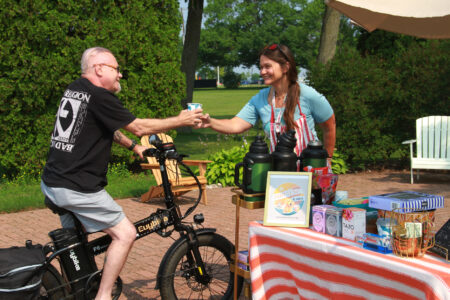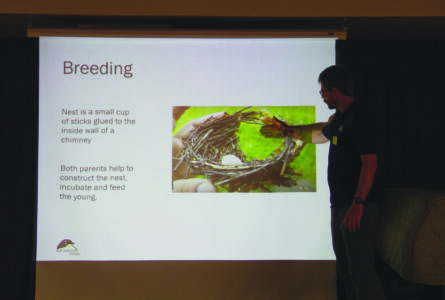Precautions needed in heat wave
ESCANABA — With local temperatures recently approaching the 90-degree mark, OSF HealthCare St. Francis Hospital & Medical Group Physician Assistant Tiffany Molinari shared some safety tips with people in the area looking to spend time outside this summer.
“Enjoy the weather — we don’t get many days like this — but be smart about it,” Molinari said.
According to Molinari, exposure to heat and sunlight can be dangerous or even deadly if people are not careful.
“Watch for symptoms of heat exhaustion and heatstroke,” she said.
Symptoms associated with heat exhaustion include excessive sweating, a rapid, weak pulse, dizziness and clammy, pale skin. On the other hand, people suffering from heatstroke can have an absence of sweat, confusion, red and dry skin, headache, nausea, vomiting and a rapid, strong pulse.
If people believe they are experiencing heat exhaustion, they should move to a cooler place. People suspected to have heatstroke should receive medical attention.
Elderly people and those with pre-existing conditions can be affected by summer weather more quickly
than healthy individuals, Molinari said.
“You really want to check on them,” she said.
Molinari said making sure to avoid dehydration is particularly crucial at this time of year.
“I think probably the most important (thing) is staying hydrated,” she said.
She encouraged people to regularly drink water or beverages with electrolytes.
“Drink throughout the day, even when you’re not thirsty,” Molinari said.
People can also help themselves stay hydrated by making sure to drink fluids a day before they plan to spend time outside.
Certain types of clothes can help people avoid heat exhaustion and heatstroke.
“(Wear) loose, light-colored clothing,” Molinari said.
People can protect themselves from heat and sun exposure by wearing hats and sunglasses and putting on sunblock, as well.
Another effective way to stay safe and healthy during the summer is to get outside at times of the day where heat and sunlight are less severe than they are in the afternoon.
“Try to do your activities more in the morning or evening, when it’s cooler,” Molinari said.



